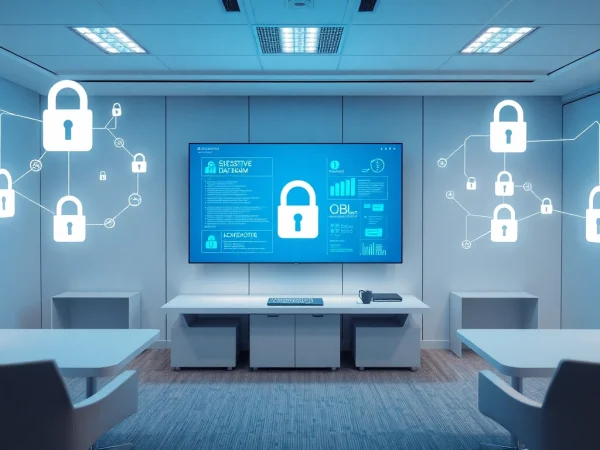Effective Strategies for Debt Collection Outsourcing: Boost Efficiency and Reduce Costs
Understanding Debt Collection Outsourcing
In today’s complex financial landscape, businesses often face challenges in effectively managing accounts receivable. One strategic solution that has gained traction is Debt Collection Outsourcing. This approach involves engaging third-party agencies to handle the collection of outstanding debts on behalf of a business. By doing so, companies can mitigate the risks associated with delinquent accounts while simultaneously focusing on their core operations. In this article, we will delve deeper into the concept of debt collection outsourcing, its benefits, misconceptions, and key factors to consider for a successful partnership with an outsourcing provider.
What is Debt Collection Outsourcing?
Debt Collection Outsourcing refers to the practice of hiring external agencies to recover overdue payments from clients or customers on behalf of a business. These specialized firms employ various techniques and technologies to facilitate the recovery process, which can include phone calls, emails, text messages, and even legal actions in some cases. The main goal is to recover as much of the owed amount as efficiently and effectively as possible.
Benefits of Debt Collection Outsourcing
Outsourcing debt collection comes with a multitude of benefits that can positively impact your business’s financial health. Here are some key advantages:
- Cost-Effective: By outsourcing, companies can eliminate the need to maintain an in-house debt collection team, reducing labor costs and overhead expenses.
- Expertise: Third-party agencies specialize in debt collection techniques and strategies. This expertise often leads to higher recovery rates than in-house efforts.
- Focus on Core Activities: With debt collection handled externally, businesses can concentrate on their primary operations, improving overall efficiency.
- Legal Compliance: Professional debt collection agencies are well-versed in the legalities surrounding collection practices, ensuring compliance with regulations such as the Fair Debt Collection Practices Act (FDCPA).
- Improved Cash Flow: Efficient debt recovery improves cash flow, which is crucial for maintaining operations and funding growth initiatives.
Common Misconceptions About Debt Collection Outsourcing
Despite its benefits, several misconceptions persist about debt collection outsourcing. Addressing these myths can facilitate a better understanding of the practice:
- Only for Struggling Businesses: Many think that outsourcing collections is only for businesses on the verge of bankruptcy. In reality, any company with outstanding receivables can benefit from these services.
- Loss of Customer Relationships: A common fear is that outsourcing collections can lead to a loss of customer goodwill, but professional agencies are trained to handle interactions tactfully and respectfully.
- High Costs: Some believe that outsourcing is prohibitively expensive. However, when considering the costs of in-house collections, outsourced services can often prove to be more cost-effective.
- All Agencies are the Same: Not all debt collection agencies offer the same level of service or success rates. Selecting the appropriate partner is essential for maximizing results.
Key Factors to Consider in Debt Collection Outsourcing
Choosing the Right Partner for Debt Collection Outsourcing
Choosing an effective partner for debt collection outsourcing is crucial for achieving optimal results. Here are some factors to consider:
- Experience and Reputation: Evaluate the agency’s track record and reputation in the industry. Look for testimonials or reviews that reflect their success in recovering debts.
- Technology and Tools: Ensure that the agency uses modern technology for communication and data management. This can significantly impact their recovery effectiveness.
- Flexibility and Customization: The best agencies will offer customizable collections strategies that align with your business needs, rather than a one-size-fits-all approach.
- Compliance Practices: A reputable agency should have a strong understanding of relevant laws and compliance issues to avoid legal ramifications.
- Reporting and Transparency: Ensure that the agency provides regular updates on their performance, including metrics and strategies employed, thus maintaining transparency.
Compliance and Legal Considerations in Debt Collection Outsourcing
Debt collection is regulated by various federal and state laws designed to protect consumers. It’s vital to ensure that your outsourcing partner adheres to these regulations:
- Fair Debt Collection Practices Act (FDCPA): This U.S. law sets out rules for how debt collectors can conduct their business. Ensure the agency is compliant to avoid potential litigation.
- Consumer Credit Protection Laws: Understand what laws apply in the geographical areas where you operate. Your partner should be knowledgeable about local regulations.
- Data Protection Regulations: Protection of customer data is paramount. Ensure the agency employs robust measures to safeguard sensitive information, complying with regulations like GDPR or CCPA if applicable.
Cultural Sensitivity and Communication in Debt Collection Outsourcing
Cultural differences can play a significant role in the effectiveness of debt collection efforts, especially in a diverse or global marketplace. Here are key points to consider:
- Understanding Cultural Norms: Different cultures have varying perceptions of debt and communication styles. A skilled agency will tailor their approach based on the demographic profiles of the debtors.
- Language Proficiency: Ensure the agency can communicate effectively in the preferred language of the debtors. This builds trust and improves recovery chances.
- Respectful Communication: The manner in which collections are handled can greatly affect the customer relationship. Sensitivity to cultural nuances fosters a more respectful and less confrontational environment.
Best Practices for Successful Debt Collection Outsourcing
Setting Clear Objectives for Debt Collection Outsourcing
Establishing well-defined objectives is critical when engaging in debt collection outsourcing. Consider the following practices:
- Define Recovery Goals: Specify what percentage of debts you aim to recover within given timeframes. Clear recovery goals set expectations for both your business and the outsourcing partner.
- Identify Target Demographics: Categorize your debts based on various criteria—age, size, or type of debt. Tailor your strategies accordingly to maximize recovery.
- Establish Performance Metrics: Determine what metrics will be used for evaluating the effectiveness of collections efforts, such as recovery rate or customer satisfaction levels.
Integrating Technology in Debt Collection Outsourcing
Utilizing the right technology can enhance the efficiency of debt collection processes. Below are some technological integrations to consider:
- Automated Communication Systems: Implement software that automates text messages, emails, and phone calls to streamline the communication process with debtors.
- Data Analytics Tools: Leverage analytics to assess customer payment behavior and tailor collection strategies based on empirical data, increasing effectiveness.
- Secure Data Management: Ensure that all systems employed by the agency comply with data protection regulations and securely manage sensitive information.
Monitoring Performance Metrics in Debt Collection Outsourcing
Continuous monitoring of performance metrics is essential to ensure that your debt collection outsourcing efforts are successful. Consider the following metrics:
- Recovery Rates: Track the percentage of debts recovered compared to the total amount owed. This is a key performance indicator of an outsourcing partner’s effectiveness.
- Customer Interaction Metrics: Measure response times and rates of engagement in communications—understanding these can refine future strategies.
- Cost per Recovery: Evaluate the overall expense incurred for each debt recovered to ensure the service remains cost-effective.
Challenges and Solutions in Debt Collection Outsourcing
Addressing Client Concerns in Debt Collection Outsourcing
Businesses often harbor concerns when considering debt collection outsourcing. Address these concerns proactively:
- Relationship Management: Many worry about damaging customer relationships. Educating clients on the professional approach and respectful dialogue adopted by reputable agencies can alleviate these fears.
- Quality Control: Ensure your partner implements robust quality control measures, including training and supervision of collection agents to maintain high standards.
- Communication Transparency: Keep clients informed throughout the collection process, outlining steps being taken to recover debts and facilitating trust.
Managing Expectations in Debt Collection Outsourcing
Setting realistic expectations is vital for a successful debt collection outsourcing partnership. Use the following strategies:
- Educate Stakeholders: Provide clients with insights into standard recovery timelines and possible outcomes based on historical data to avoid unrealistic expectations.
- Regular Updates: Maintain open lines of communication with clients, providing regular status updates on recovery efforts and any challenges being faced.
- Initial Benchmarking: Initiate the partnership with an assessment of initial conditions, which helps in setting achievable recovery targets.
Continuous Improvement in Debt Collection Outsourcing Processes
To maximize the effectiveness of debt collection outsourcing, embrace a mindset of continuous improvement:
- Conduct Regular Reviews: Periodically assess the performance of your outsourcing partner, using the established metrics to evaluate their service quality.
- Solicit Feedback: Gather feedback from both clients and debtors about their experiences during the collection process to identify areas for enhancement.
- Embrace Innovation: Stay updated with market trends and technological advancements that could improve debt collection methods and strategies.
The Future of Debt Collection Outsourcing
Emerging Trends in Debt Collection Outsourcing
The landscape of debt collection is continually evolving. Some trends to watch include:
- Increase in Digital Communication: As consumers increasingly prefer digital channels, agencies are adopting more tech-driven approaches for collections.
- Focus on Consumer Experience: Agencies are prioritizing debtor experience, understanding that a more empathic approach can lead to higher recovery rates and less friction.
- Integration of AI and Automation: The use of AI tools to forecast debtor behaviors and automated systems for outreach is creating more efficient processes for collections.
Impact of Technology on Debt Collection Outsourcing
Technology continues to revolutionize debt collection outsourcing. Key impacts include:
- Enhanced Data Utilization: Agencies are utilizing big data to analyze patterns and develop informed strategies for targeted collections.
- Improved Collection Methods: Sophisticated algorithms determine the most effective communication methods and times for contacting debtors, enhancing success rates.
- Increased Efficiency: Automation of routine tasks allows agents to focus on complex cases, reserving human resources for high-value interactions.
Preparing for Changes in Debt Collection Outsourcing Practices
As industry practices shift, businesses must be agile in adapting to these changes:
- Stay Informed: Regularly educate yourself and your team on emerging regulations and technologies that impact debt collection.
- Engage in Training: Invest in training for both internal staff and outsourced partners to ensure everyone stays aligned with best practices and compliance requirements.
- Evaluate Partnerships Periodically: Keep a pulse on the outsourcing partnership, making necessary adjustments to continually strengthen the relationship and boost effectiveness.










